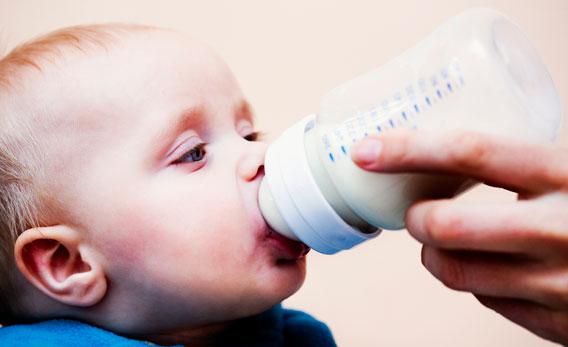Katie,
I think we could probably go head-to-head for a long while on the question of who is better at doling out the guilt. I remember a set of ads from that National Breast-feeding Awareness Campaign I mentioned that showed a hugely pregnant woman in a logrolling contest and another one riding a mechanical bull, with the slogan: “You wouldn’t take risks before your baby is born. Why start after?” This is about as devious and cynical as the co-sleeping campaign you mentioned, We both know that failing to breast-feed exclusively for six months is not as dangerous as riding a mechanical bull while nine months pregnant, and that co-sleeping is not as dangerous as putting a baby to bed with a butcher knife. But all we’ve managed to prove is that PR companies can be really devious and cynical.
Which leads me to your accusation that Badinter’s book is tainted because her family holds controlling interests in Nestlé’s PR firm. If Badinter were a blogger just coming out with her first book, I might be able to take the accusation more seriously. But Badinter is a public feminist intellectual (of the kind we have completely forgotten about in the United States) with a 30-year history of publishing books with a basically consistent philosophy, particularly about women. Her writing has always been hostile to the idea of a primitive, “natural” womanhood that ordains us to behave in certain ways. As this excellent New Yorker profile of her by Jane Kramer shows, she’s always been sympathetic to Simone de Beauvoir’s notion that “One is not born woman. One becomes one,”
It’s possible that Badinter has been influenced by her proximity to money and corporate power, but if so, she’s been influenced in a positive way. In discussing the cult of naturalism she writes, “We have forgotten everything we owe to chemistry—preferring to believe the worst of it.” Maybe this is Nestlé money talking here, but she’s right. I always marvel how timelines celebrating important markers of feminist liberation leave out baby formula. This powdery substance is arguably as critical a chemical innovation as the birth control pill in fostering women’s progress and freedom. Without infant formula, legions of mothers would have a much harder time going back to work, especially in a country like ours with pitiful maternity-leave policies. But it’s taboo to embrace formula these days, so we scoop it up in shame and secrecy in our own kitchens.
I don’t want to narrow Badinter’s argument to Portlandia issues like breast-feeding and co-sleeping. These are the easy targets, but they are also just the markers of the more pervasive cultural trend she’s attacking. Badinter writes about a motherhood “absolutism” or “fundamentalism” that takes hold from the moment a woman finds out she’s pregnant. Anyone who has picked up a copy of What to Expect When You’re Expecting (which would be about 17 million of us) knows what she’s talking about. Don’t eat this, don’t eat that, don’t drink, don’t go too near your cellphone, do lots of yoga, and for God’s sakes, stop stressing out. And if you touch a cigarette, contact an adoption agency.
In the 1970s and early ‘80s, women were indulged in their need for self-satisfaction, and a kind of “lively, daring freedom” took hold, Badinter quotes one historian of motherhood as writing. But soon certain developments started pushing the cultural norms in a different direction. Research on the brains of babies and toddlers, and even fetuses, gave us a much deeper understanding of what might affect their development. Parental authority fell out of vogue, and parents were much more willing to let children lead the way. In earlier decades, it was understood that women simply tolerate their babies, but now, in order to be an acceptable mother, women are expected to give themselves over to the “jouissance”— what Jane Kramer translates in the New Yorker piece as the “orgasm” of intimacy with their little ones.
I know what this sounds like. Maybe people reading this will say about me what they said about Badinter: that she hates her children. Believe me, I find my children absolutely delightful almost all of the time. But I bristle at the impracticality of it all. Why is it at this moment when women are so ambitious, when in fact much of society has become dependent on their unfettered ambition, that we have created this especially demanding culture of motherhood? Why must we remain stuck between unreasonable expectations at home and an American work culture that barely recognizes that babies have to be raised by those same adults you are asking to be online at all hours? The timing at least seems cruel, no?
